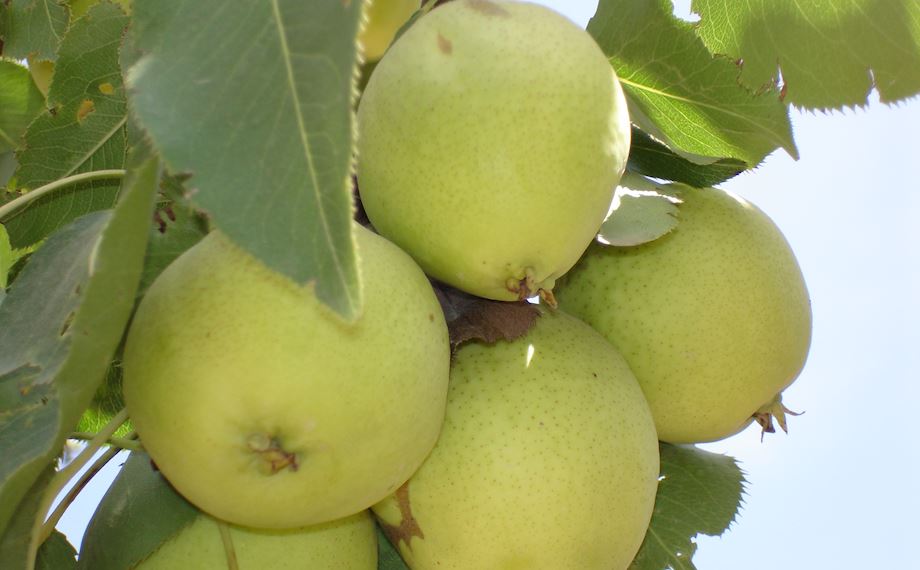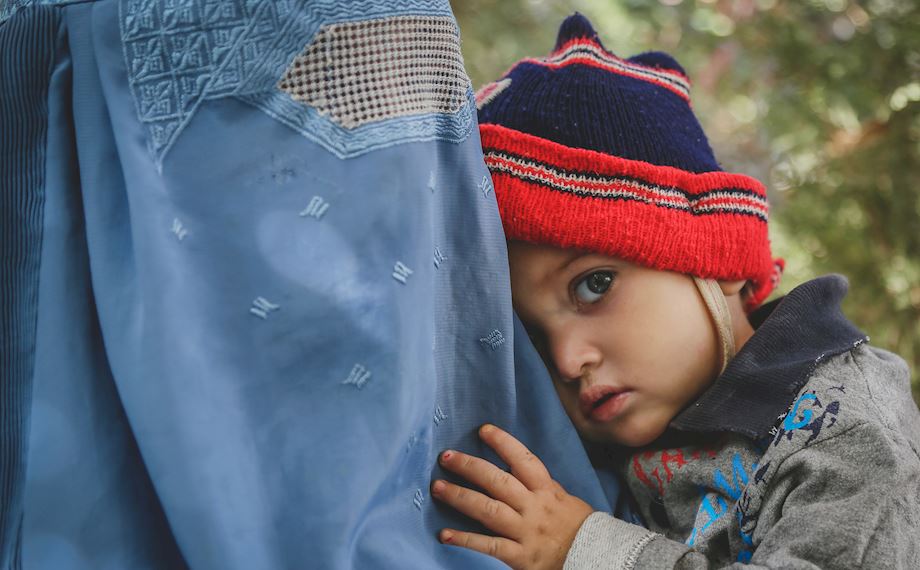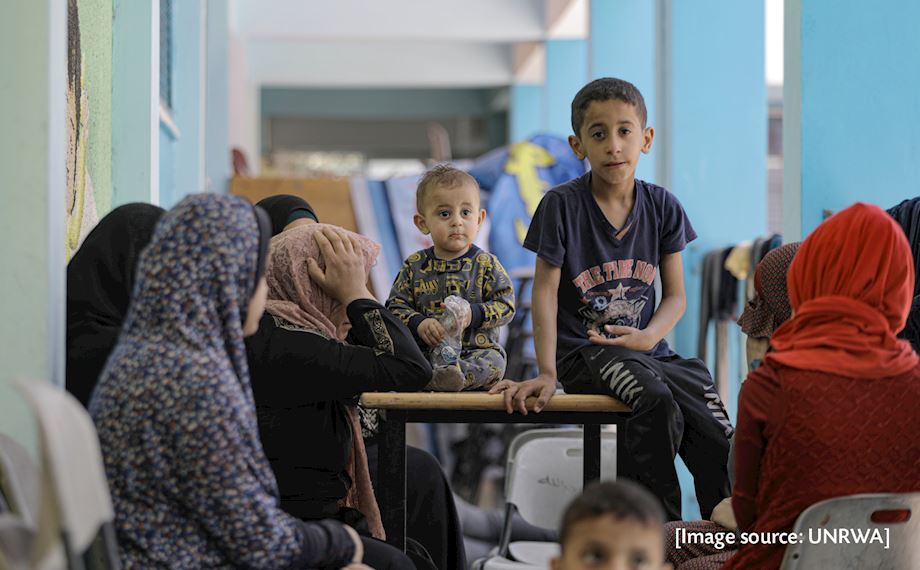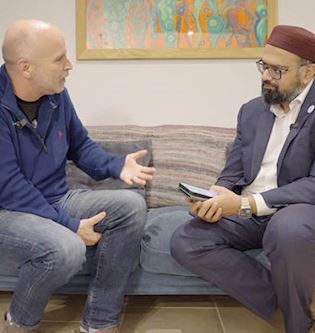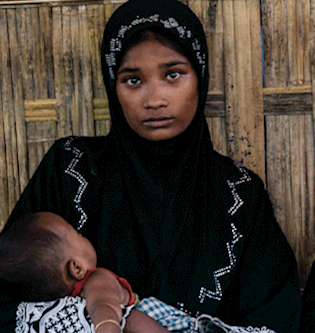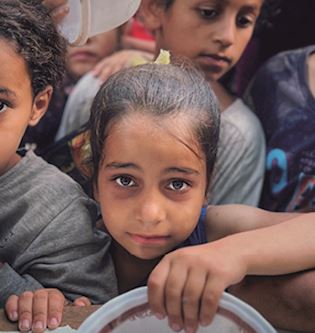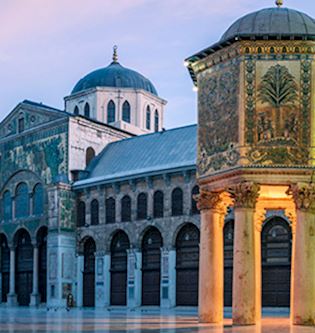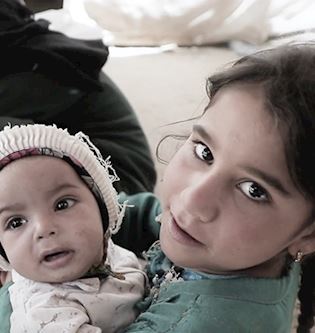Life of Maryam (as): 5 Lessons on Trusting Allah

We have previously published an article discussing some little-known facts about Prophet ‘Isa (as). In this article, we'd like to talk about his noble mother, Maryam (as), known as ‘Virgin Mary’ in the west.
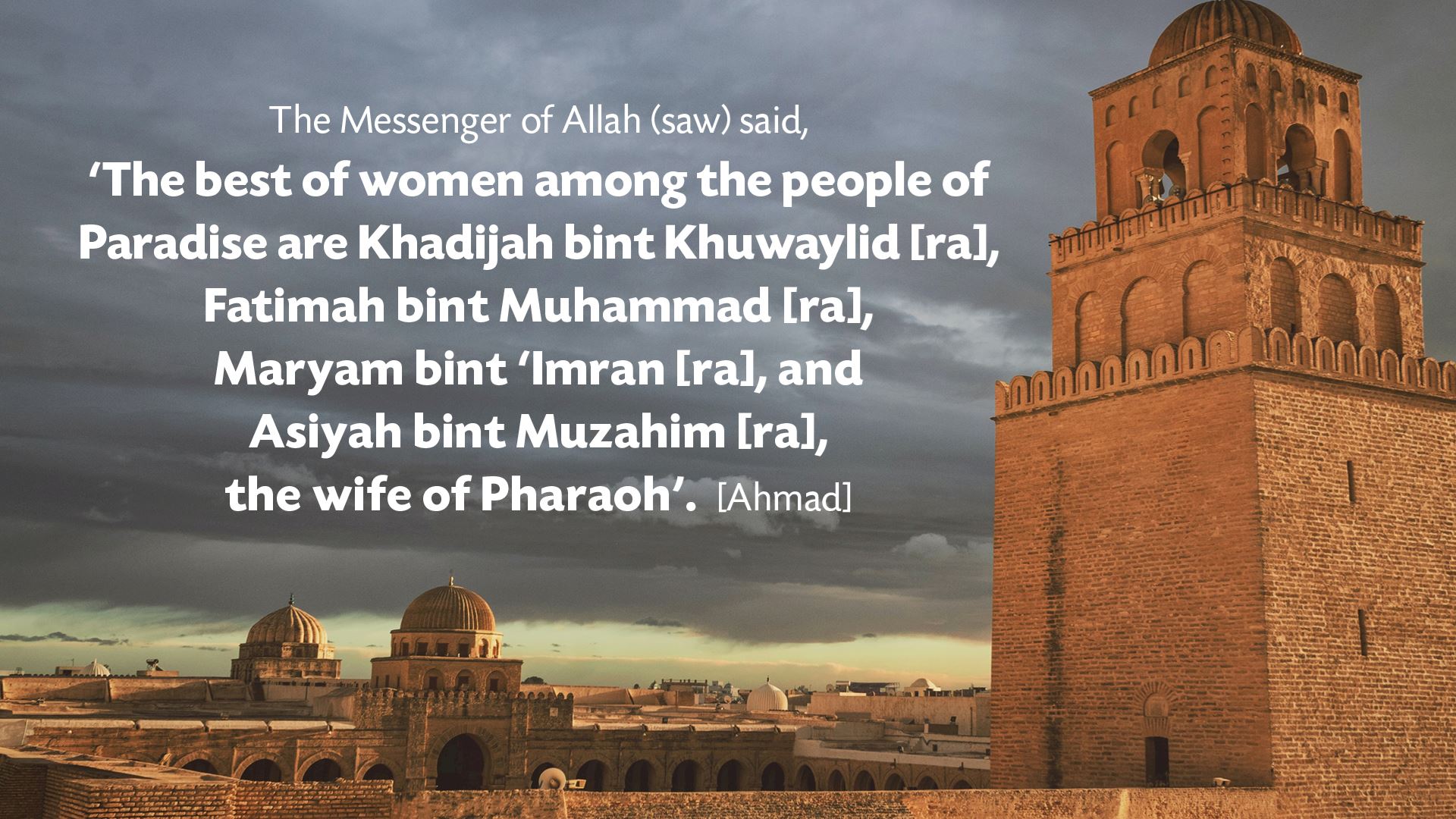
Since Maryam (as) is literally one of the best women who ever lived, there are undoubtedly many lessons we can draw from her life! But in this article, we’d like to focus on one thing in particular: her Tawakkul in Allah.
What is Tawakkul? A key quality of the true believer, Tawakkul can be hard to maintain, especially when things don't go the way we planned. That's why the story of Mary or Maryam (as) is so important in reminding us to trust in Allah’s plan for each and every one of us.
Do you want to help mothers and babies facing frightening levels of maternal death and child malnutrition? Check out our Motherkind health clinics now.
Lesson 1: Allah (swt) answers du’as in the best way
Maryam (as) was the answer to a du’a made by ‘Imran’s wife, Hannah. According to Muhammad bin Ishaq (rh), the famous Prophetic biographer, Hannah could not have children, but one day, she saw a bird feeding its chick and she asked Allah for a child. When she fell pregnant, she vowed that she would raise her child to concentrate on worshipping Allah and serving the Blessed Masjid Al-Aqsa in Jerusalem. [Tafseer ibn Katheer]
‘[Mention, O Prophet (saw),] when the wife of ‘Imran said, “My Lord, indeed I have pledged to You what is in my womb, consecrated [for Your service], so accept this from me...”’ [The Noble Qur’an, 3:35]
Let's take a look at how generously and beautifully Allah answered Hannah’s du’a:
- Firstly, Allah gave her a baby, though Hannah thought she couldn’t have a child.
- Secondly, Hannah was surprised when Allah granted her a girl. She had pledged her child to serving the Blessed Masjid, and she assumed a boy would be stronger and better-suited to this task [Tafseer ibn Katheer]. But she renewed her intention, saying:
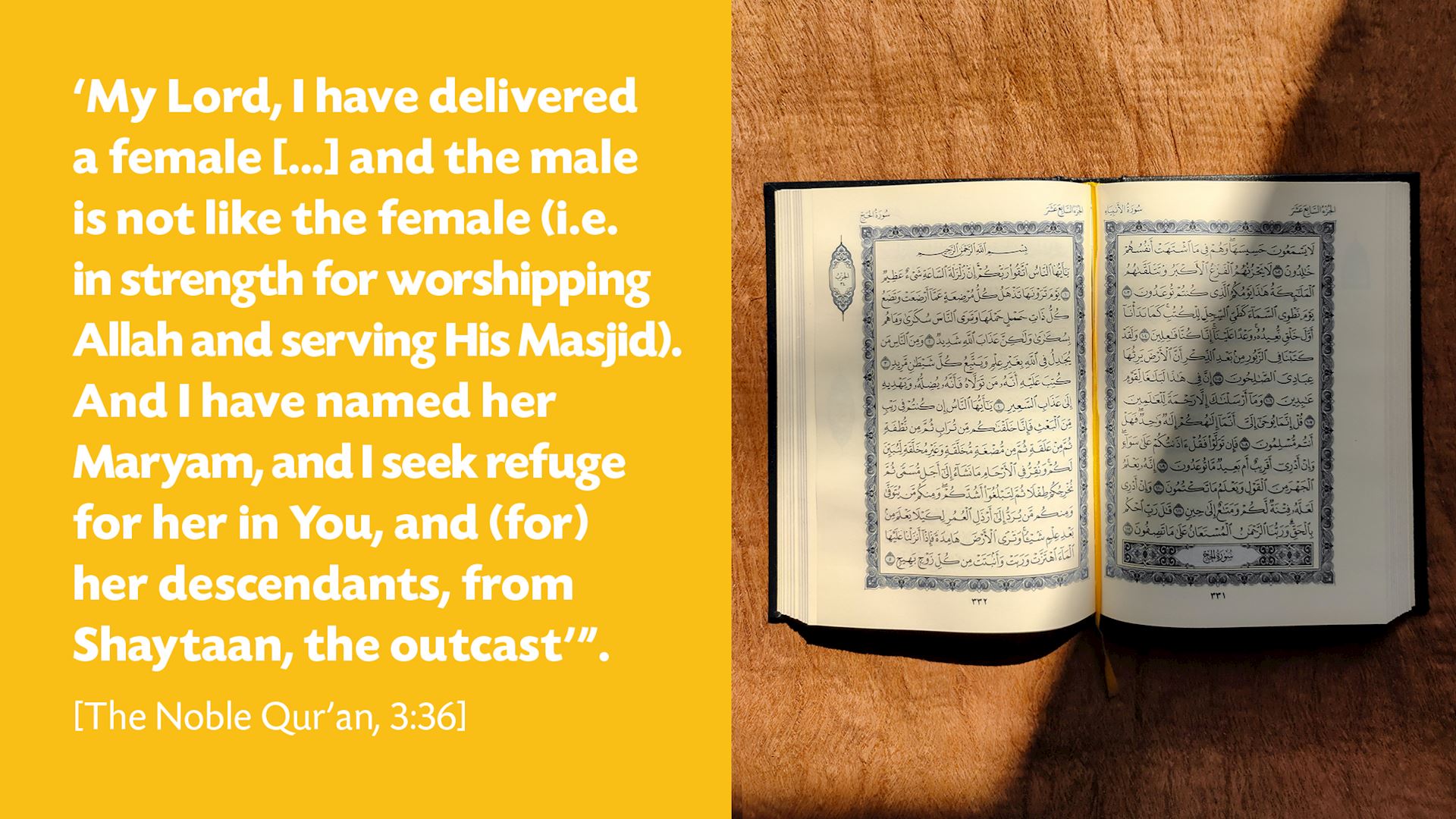
Allah gave Hannah a girl whom she named Maryam (as). Interestingly enough some scholars have indicated that her name means the one who serves and also one who is equal to two men. As we shall later see, Maryam (as) had amazing strength in serving Allah and getting through intense tests. And Allah is the Most Wise and the Best of Planners when He answers our du’as.
- Thirdly, Hannah sought refuge in Allah from Shaitan, and subhanAllah, He answered her du’a so absolutely that the devil couldn’t even touch Maryam (as):
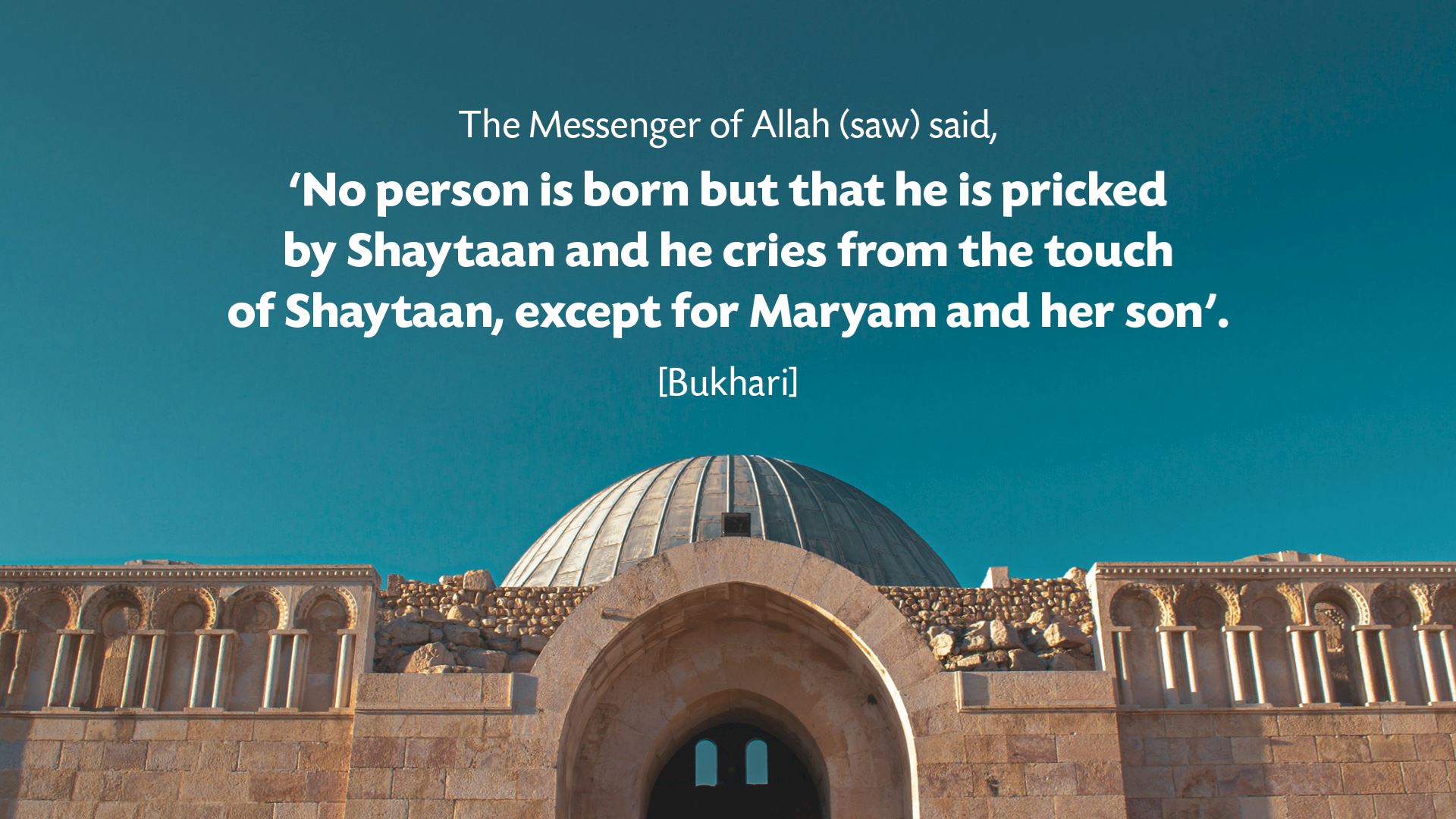
Allah says of Maryam (as), ‘So her Lord accepted her with good acceptance and caused her to grow in a good manner and put her in the care of (Prophet) Zakariyya [as].' [The Noble Qur’an, 3:37]
According to Tafseer Ibn Katheer, Allah accepted Hannah’s vow that Maryam (as) would be devoted to Allah’s worship. So Allah made Maryam’s (as) conduct becoming, her mannerisms delightful, and He made her well-liked among people. Allah also put her in the care of righteous people like Prophet Zakariyya (as).
SubhanAllah, Hannah made a simple du’a from the pure intention of a mother’s heart, and Allah answered it so completely that Maryam (as) is remembered to this day for her excellence, strength and purity.
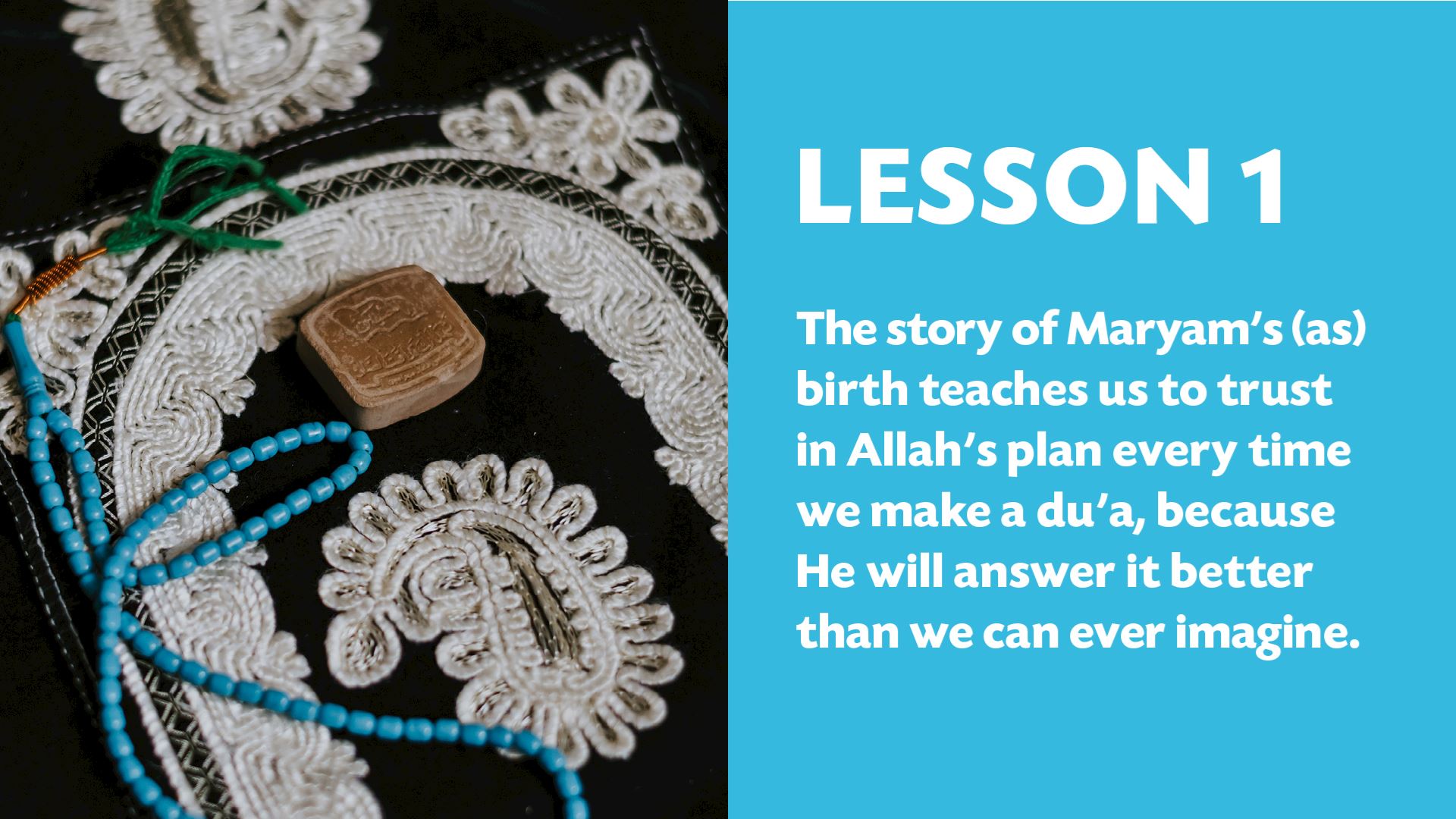
Lesson 2: Provision is from Allah (swt)
As mentioned before, Maryam (as) was placed in the care of Prophet Zakariyya (as), who was her uncle (the husband of her maternal aunt). This was because Hannah had vowed to ‘set her free’ so she could devote her life to serving the Masjid. [Tafseer Ibn Katheer]
As Maryam (as) grew up, she naturally spent a lot of time in secluded worship. Closed away in her private prayer room, Zakariyya (as) was amazed that there was always food coming into the room:
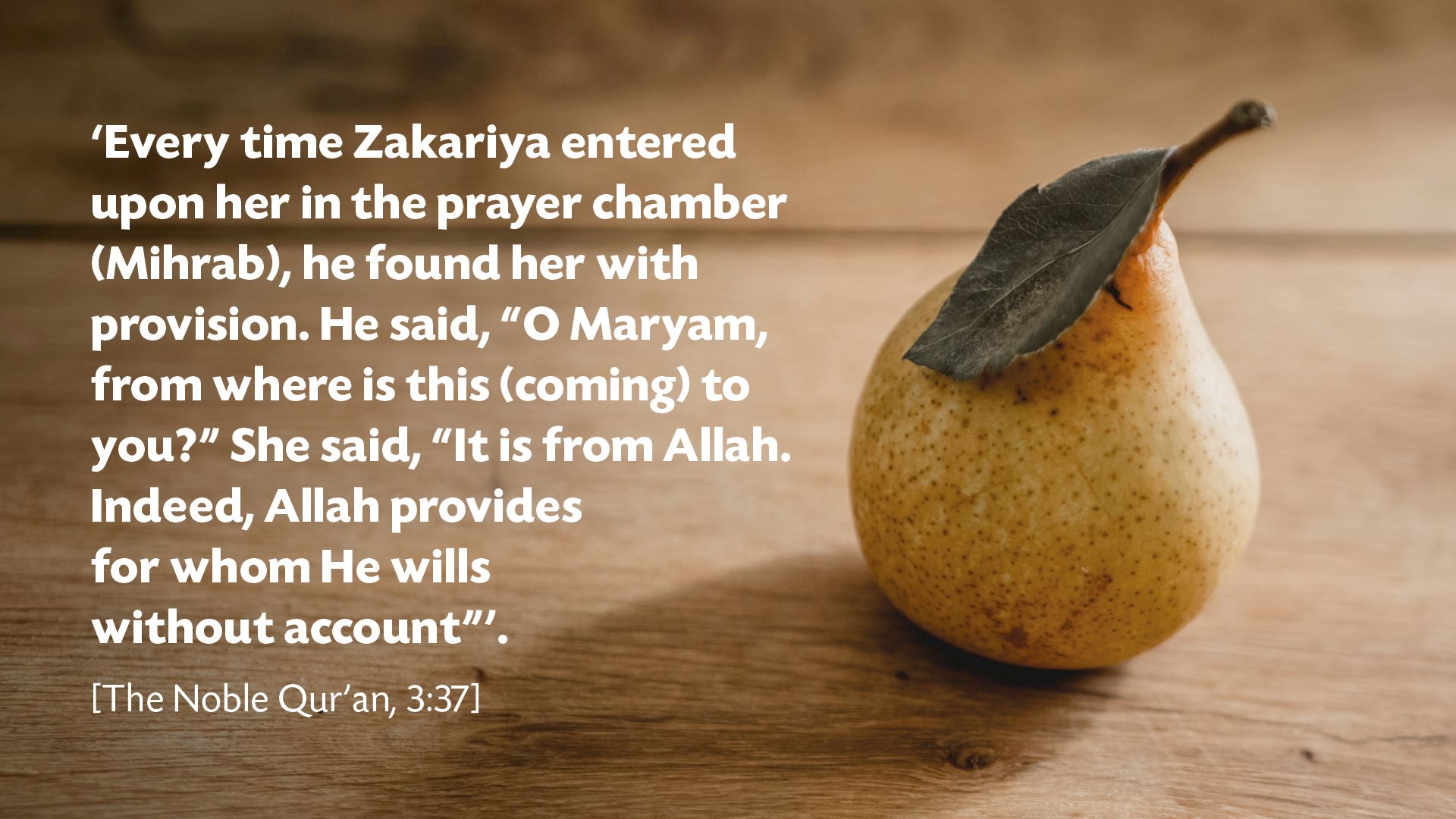
Scholars have said, ‘He would find her with the fruits of the summer during winter, and the fruits of the winter during summer’. [Tafseer Ibn Katheer]
It is no surprise that Zakariyya (as) was amazed to find that his secluded niece had access to fruits out of season! But Maryam’s (as) simple statement ‘It is from Allah’ is a testament to her absolute trust that she was in Allah’s care.
Interestingly, the Qur'an narrates that, after Zakariyya (as) spoke to Maryam (as) about this provision, he immediately made du’a himself for a righteous child, even though he was very old and his wife at the time was barren. Allah answered his du’a immediately whilst he was still standing praying to Him, and gave him the good news of a son, who would be called Yahya (as).
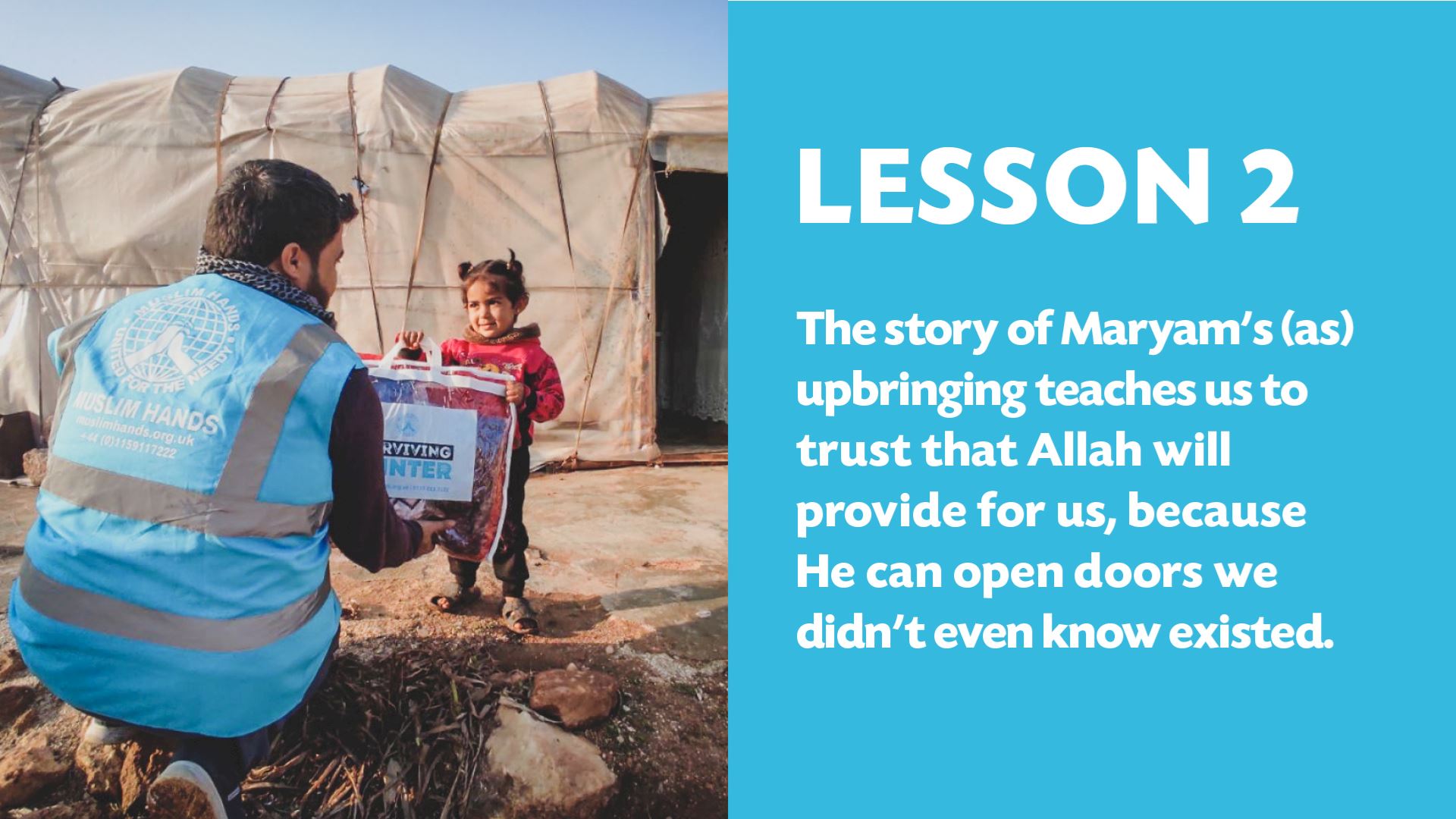
This is a particularly difficult time for people across the globe, with many families struggling to cope financially. But it is more important than ever that we remember that Allah is our Provider, Ar-Razzaq.
One of the ways Allah tells us we can multiply our wealth and put barakah (blessings) in it is by using it to help others. It doesn’t matter how minor you think the assistance is, it will bring you reward in sha Allah:
‘The likeness of those who spend their wealth in the way of Allah, is as the likeness of a grain (of corn); it grows seven ears, and each ear has a hundred grains. Allah gives manifold increase to whom He wills. And Allah is All-Sufficient for His creatures’ needs, All-Knower.’ [The Noble Qur’an 2:261]
And don’t forget, your provision (Rizq) was determined even before you were born! In fact, while you were 120 days old in the womb of your mother, an angel blew your soul into you and conveyed to Allah your provision, your life span, your actions, and whether you would be happy (enter Paradise) or sad [Bukhari and Muslim]. No matter what happens, you will always receive the Rizq that Allah has destined for you.
It may seem like we are in a difficult situation financially, or that it is impossible for us to access something we want, but we never know which door Allah will open. Allah can provide for us in ways we never expected - all we have to do is try our best and trust Allah to take care of the rest.
Lesson 3: Allah (swt) is Capable of anything and everything
As mentioned, Maryam (as) spent a great deal of time in secluded worship, in the eastern part [The Noble Qur'an, 19:16] of the Blessed Masjid Al-Aqsa. One day, while she was in seclusion, Allah sent the Angel Jibril (as) to her in the form of a man. Their conversation is narrated in Surah Maryam, verses 18-21.
As we have seen, Maryam (as) had a lot of Tawakkul (trust in Allah), so she immediately said to him, ‘Indeed, I seek refuge in the Most Gracious from you, [so leave me], if you fear Allah’.
Jibril (as) replied, ‘I am only the messenger of your Lord to give you [news of] a pure boy’.
Of course, Maryam (as) was amazed at the idea of her having a son when no man had touched her, but Jibril (as) responded to her that this was something easy for Allah and it was a matter already decreed.
Although the story of ‘Isa’s (as) creation is well-known to Muslims, how often do we truly contemplate on the lesson of this miracle?
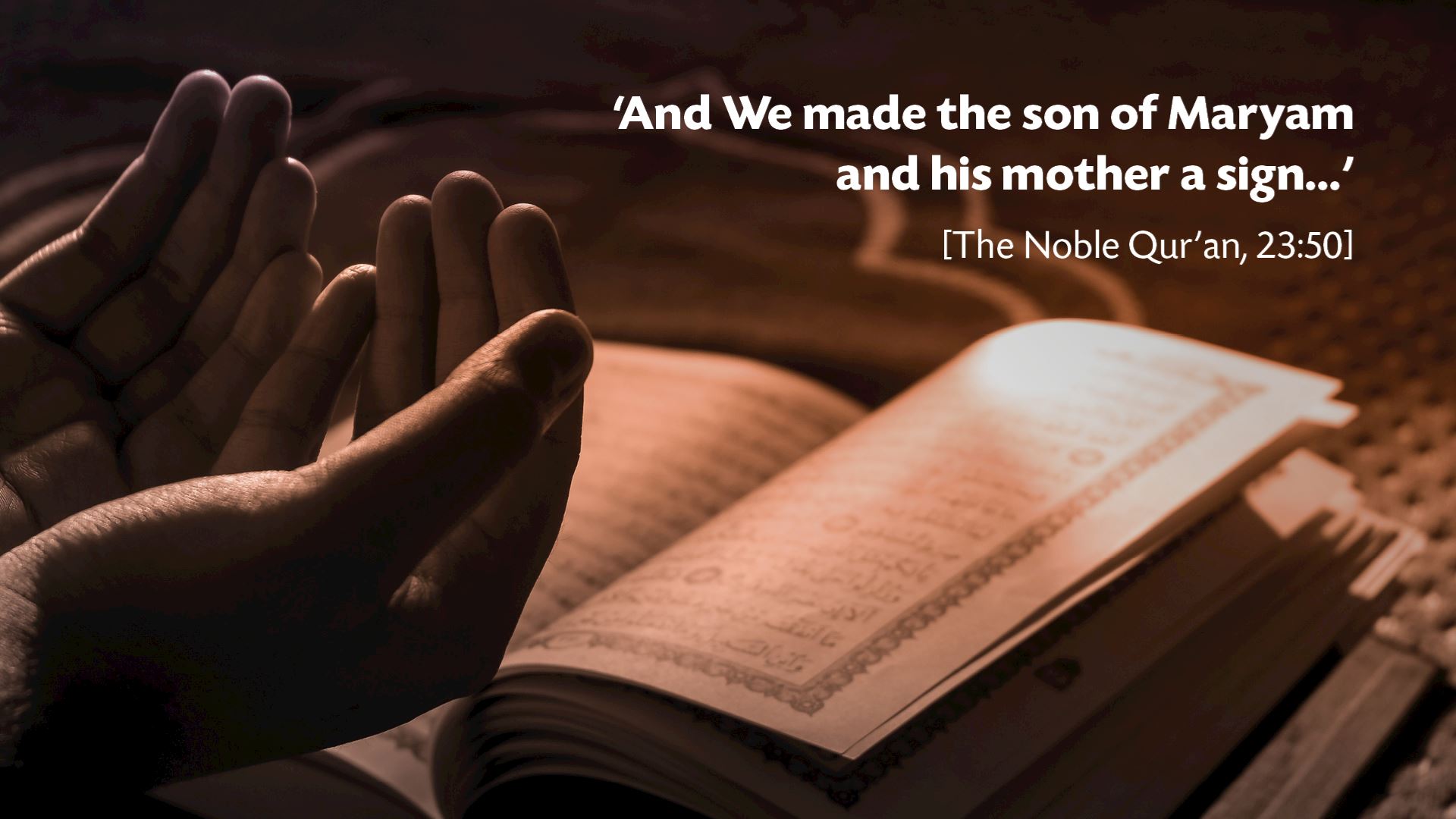
‘Isa’s creation is a sign for all of us, because it is a reminder of Allah’s incomparable power. Nothing is difficult for Allah - He only has to say ‘Be!’ and whatever He intended to create will be created.
This is something so basic to our belief that we rarely contemplate it. But it is important to reflect on Allah’s infinite capability and power often, because it strengthens our trust in Allah and our surrender to Him. Knowing that Allah is Capable of anything helps us when we are experiencing something which reminds us of our own powerlessness.
Trusting in Allah's power also helps us have faith that Allah will answer our du'as. And the Prophet (saw) himself said, 'Du’a is the essence of worship.' [Tirmidhi]
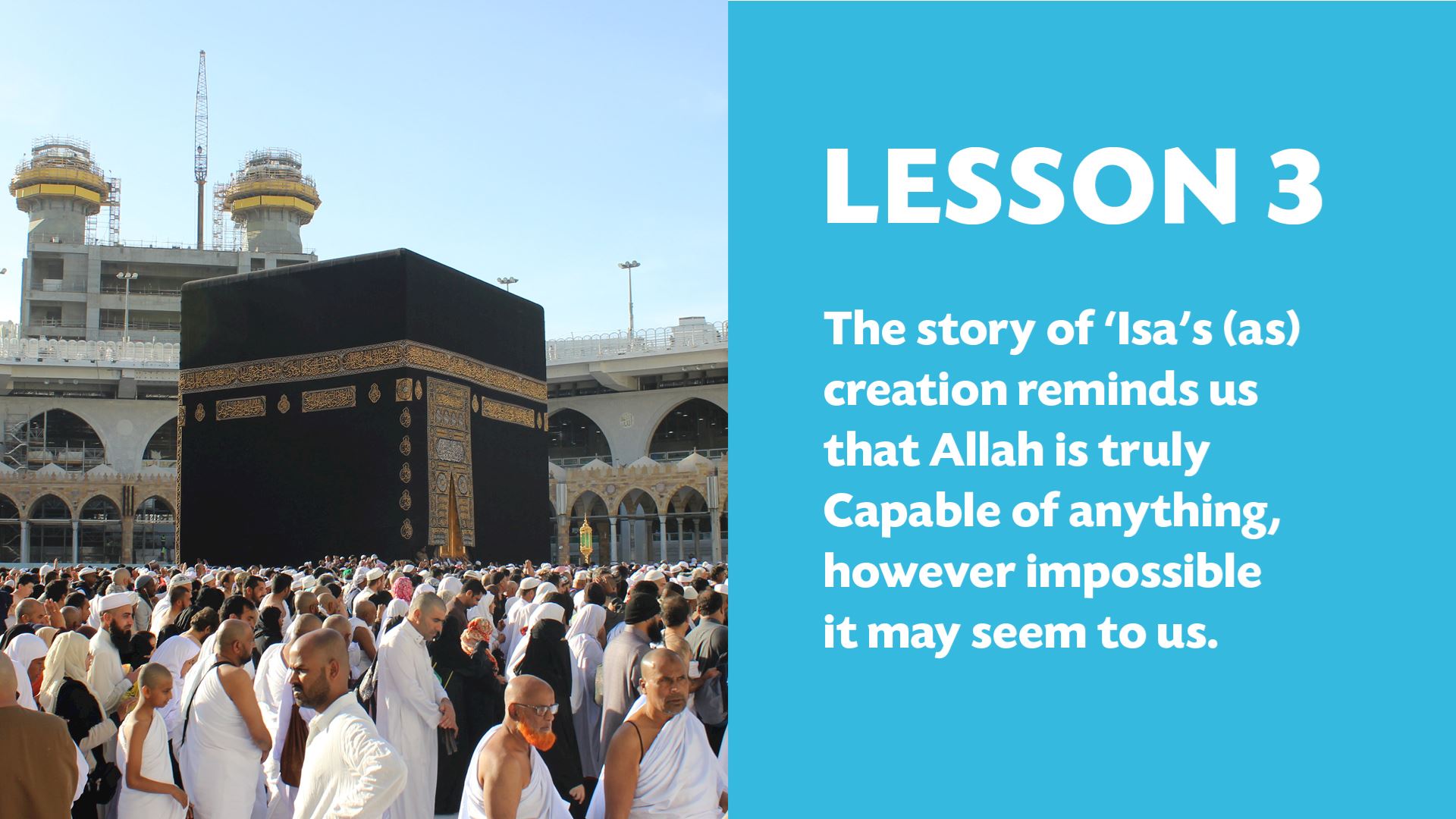
Let’s take more time to reflect, not only on miraculous stories from the Qur’an, but also on the ‘everyday’ signs of Allah's power and capability in our own lives.
Lesson 4: Your test could be your blessing
At this point, Maryam (as) began to experience an unimaginably difficult test.
According to Muhammad bin Ishaq (rh), once people found out that she was pregnant, ‘no people came to visit any house like they did the house of Zakariyya [as]. The word spread among the Children of Israel [...] so she hid herself from the people’. [Tafseer Ibn Katheer]
Maryam (as) was experiencing an unprecedented pregnancy in isolation, while knowing that people were slandering her and speculating about her. The dominant opinion among scholars is that she eventually left Jerusalem and travelled to Bethlehem, a village eight miles away. This is based on several hadith which say the Prophet Muhammad (saw) visited Bethlehem on his night journey due to it being ‘Isa’s (as) birthplace. And Allah knows best.
The Qur’an narrates that she was alone when she gave birth, under a palm tree and close to a small stream. [The Noble Qur’an, 19:23-26]
It is impossible to imagine what she was going through. She was isolated from her people, whom she thought would never believe her story, and she was experiencing childbirth - one of the most painful and testing experiences a human being can go through. At this point, her pain was so great that she wished she had died instead of experiencing it:
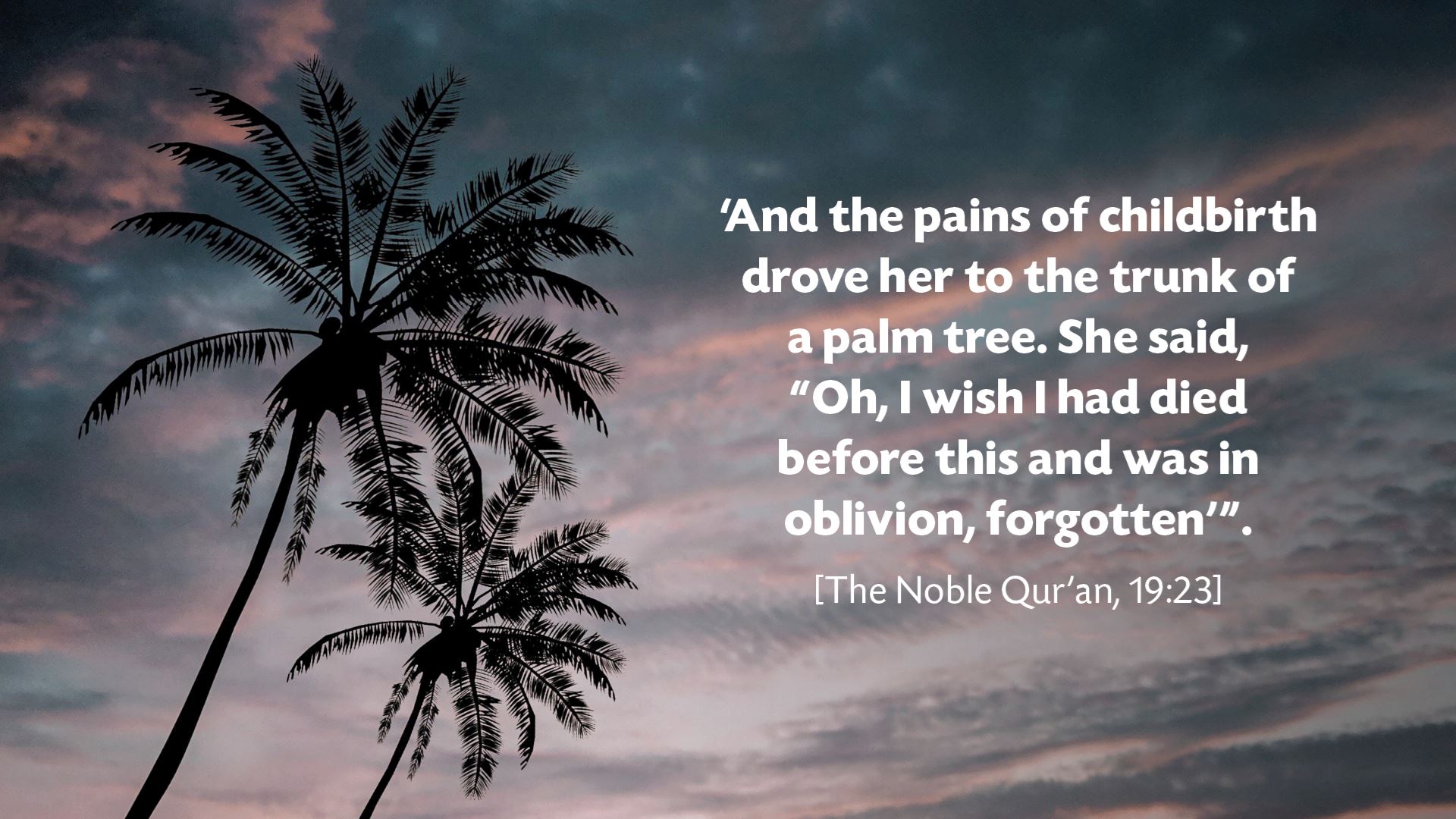
Ibn Abbas (ra) said she meant, ‘I wish I had not been created and I was nothing’, while Qatadah (ra) said she wished she was ‘unknown, forgotten, and no one knew who I was.' [Tafseer Ibn Katheer]
Maryam (as) was one of the best people who ever lived. She was chosen ‘above the women of the worlds’ [The Noble Qur’an, 3:42]. She devoted her life to Allah. SubhanAllah, she had never even been touched by Shaitan, so she was as perfect as a human being can be.
Yet even she felt desperation and anguish at the height of her test. In her pain, she wished for oblivion - to be completely forgotten. However, Allah, the Most Wise, gave her the opposite.
Maryam’s (as) name alone is mentioned 31 times in the Qur'an. She is the only woman mentioned by name in the Qur'an. Allah mentions her name even when He isn't telling her story, since Allah repeatedly says ''Isa, son of Maryam' in many places. She is far from forgotten - in fact, she is one of the most famous people in the history of humankind.
Through her pain and sacrifice, Prophet 'Isa (as) was born. How many people were guided to Allah's Light through her test? And how many people have been inspired, comforted or strengthened through her story?
Under a palm tree in a small village in Bethlehem, Maryam (as) had no idea that people across the world would one day recite Surah Maryam and remember her sacrifice and her strength.
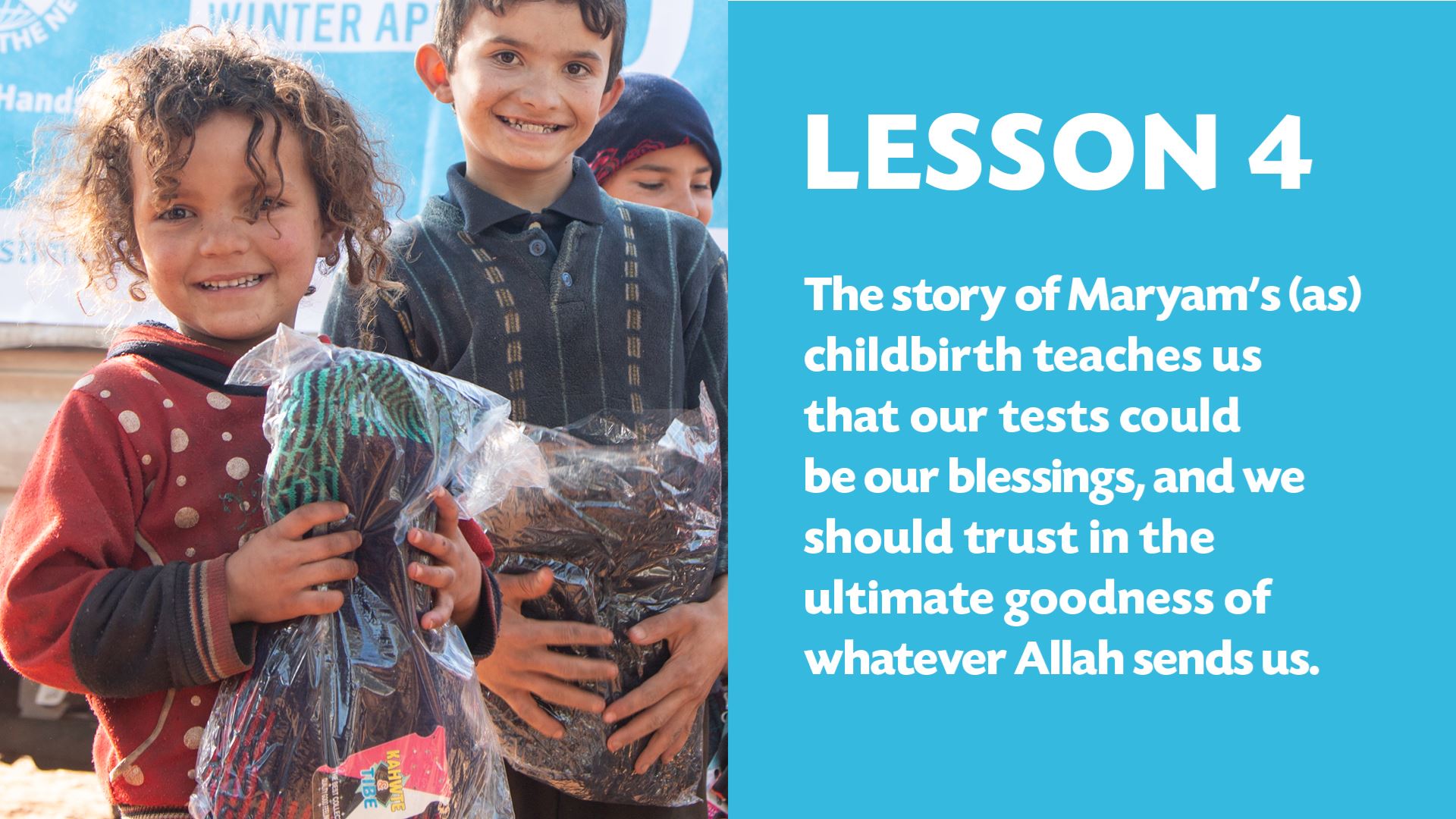
We don’t know why Allah has sent us a particular test – but we do know that there is always goodness in it:
The Messenger of Allah (saw) said, ‘Wonderful is the affair of the believer, for there is good for him in every matter and this is not the case with anyone except the believer. If he is happy, then he thanks Allah and thus there is good for him, and if he is harmed, then he shows patience and thus there is good for him.' [Muslim]
Often, we don't know that goodness of a test until years later, when we have the benefit of hindsight. But, whilst we are experiencing the test, it is part of trusting Allah to expect that there is unknown goodness in it.
This is one of the most impotant lessons from Maryam's life; Even in the hardest of moments, if we can face our tests with beautiful patience and gratitude, knowing that they are also a part of the goodness Allah has sent us, we will reap the rewards in sha Allah.
'Indeed, I have rewarded them this Day for their patient endurance – that they are the attainers [of success].' [The Noble Qur'an, 23:111]
Lesson 5: Allah (swt) is your ultimate Protector
We have so far mentioned Maryam’s (as) birth, her upbringing, her miraculous pregnancy, and her secluded labour. We will now talk about her return to her people.
After Maryam (as) gave birth, Allah commanded her to fast from speaking: ‘And if you see any human being, say: "Indeed, I have vowed a fast unto the Most Gracious, so I will not speak today to [any] human"'. [The Noble Qur’an, 19:26]
Scholars have differed over whether or not Jibril (as) or ‘Isa (as) told Maryam (as) to fast - however, either way, the command was inspired by Allah. As she returned to her people, Maryam (as) followed this command. When her people accused and questioned her, she simply pointed to ‘Isa (as) - and then Allah revealed the truth:
'So she pointed to him. They said, "How can we speak to one who is a child in the cradle?" He [‘Isa] said, "Indeed, I am the servant of Allah…"' [The Noble Qur’an, 19:29-30]
Allah not only proved the innocence and purity of Maryam (as) in front of her own people, He defended her in the Qur’an against anyone who contradicted the truth:
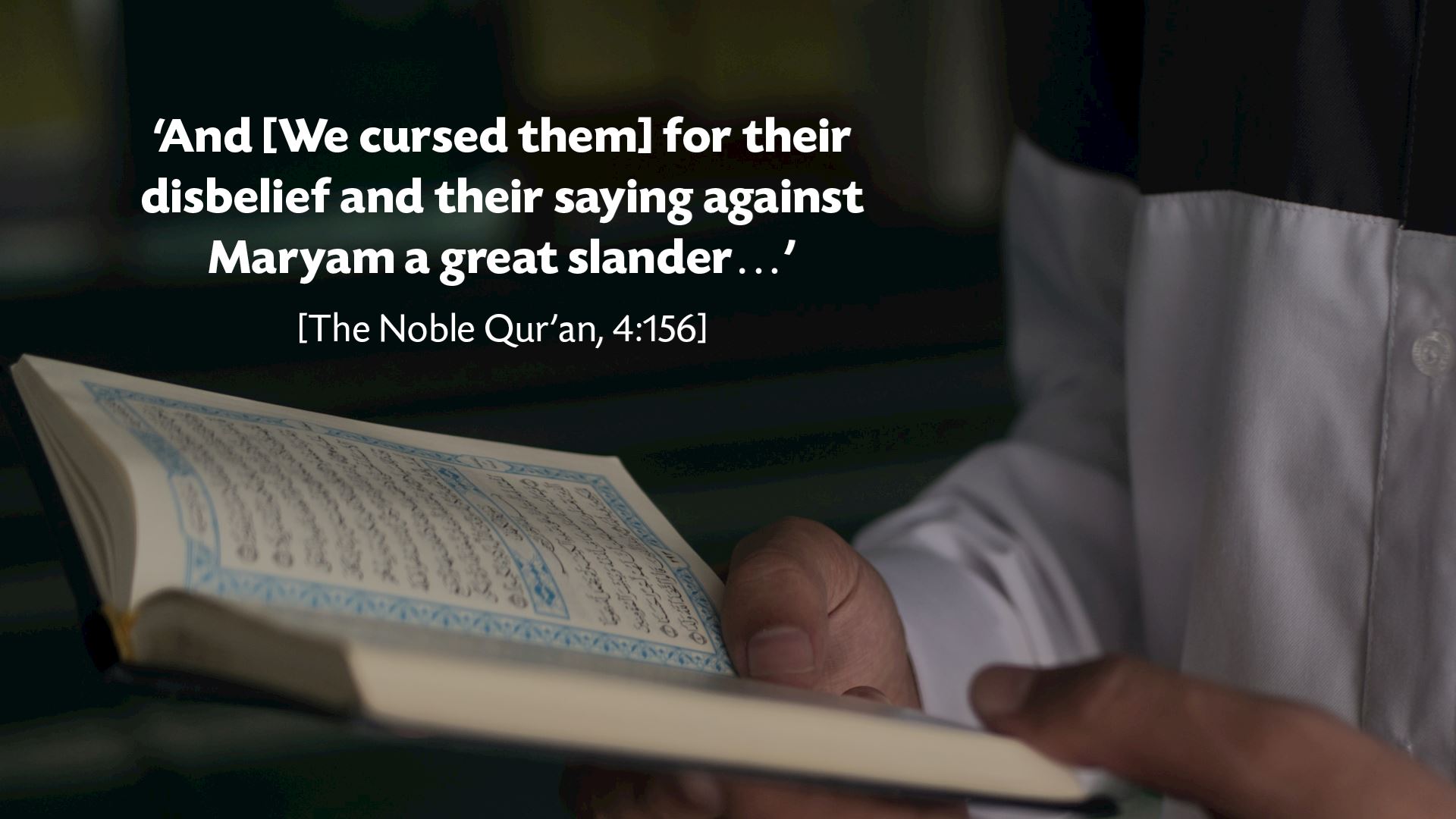
In this way, Allah not only ensured her people would have no misunderstandings about her good character, but He preserved her piety and purity until the end of time in His Book.
Maryam (as) knew she was bringing home an unexplained infant, yet she kept trusting in Allah, and she remained silent in front of her people’s questions. It was a situation which was seemingly impossible to get out of, but she knew Allah would give her a way out.
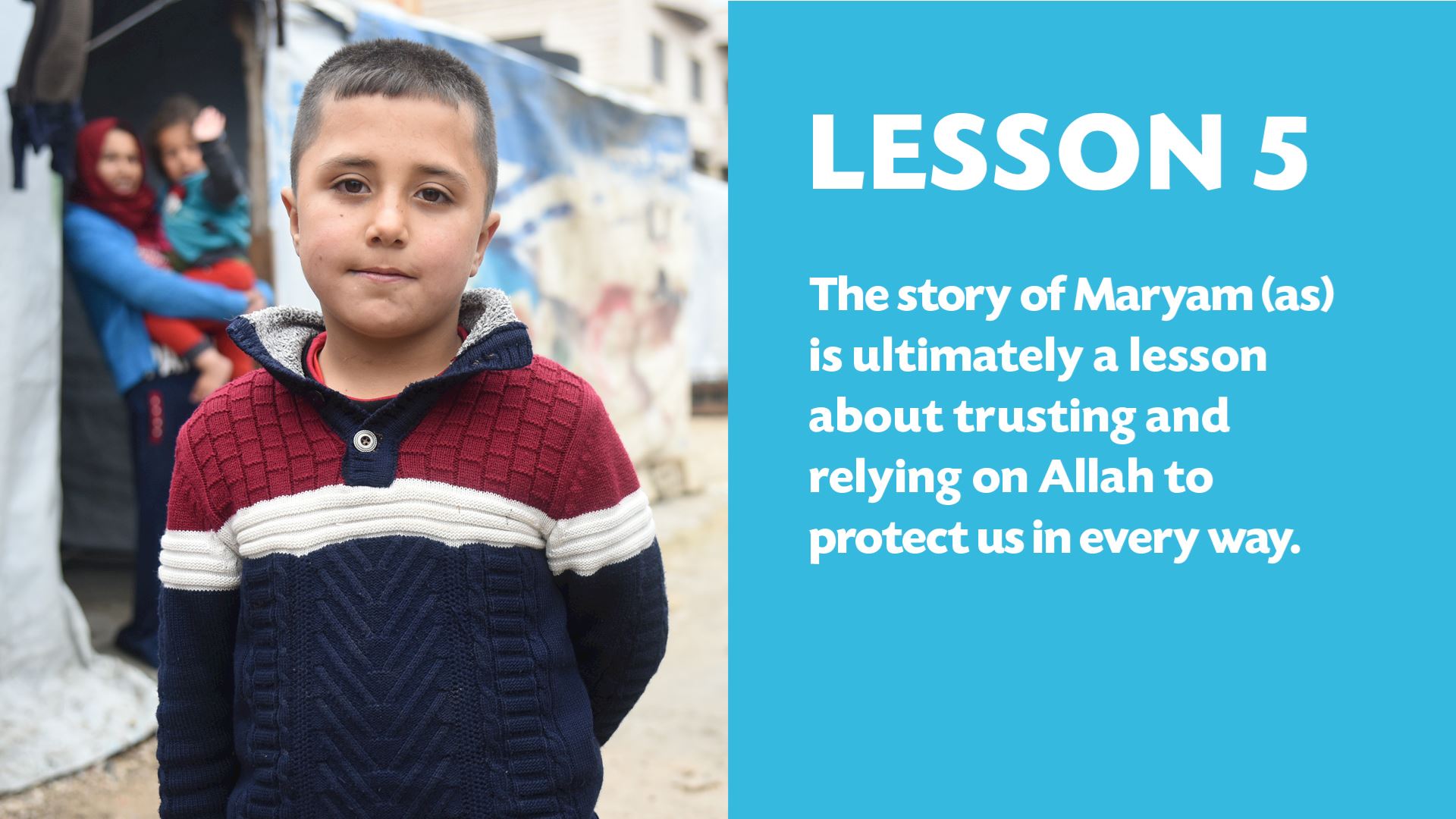
Whatever is distressing you, Allah is the only One Who can find a way out for you, so rely on Him above all else.
As the Messenger of Allah (saw) said, ‘The supplication of the distressed is this: “O Allah, I hope in Your mercy. Do not abandon me to myself, not even for a moment, and take care of all my affairs. There is no God but You”’. [Abu Dawud]
Maryam’s (as) story shows us the meaning of Tawakkul
Whatever difficulties we face, it is indeed reassuring to know that the Messenger of Allah (saw) said, ‘The greatest reward comes with the greatest trial. When Allah loves a people He tests them. Whoever accepts that wins His pleasure, but whoever is discontent with that earns His wrath.' [Ibn Majah]
We pray that our tests are a means for us to please Allah and draw closer to Him, and we pray that Allah gives us even a fraction of the Tawakkul and strength of Maryam (as), ameen.
An excellent way to demonstrate our trust in Allah is to give charity. The Prophet (saw) said, 'Charity is proof' [Muslim] - i.e. giving charity proves our faith in Allah.
Giving charity means we are trusting in Allah's divine promise: 'Spend, O son of Adam, and I will spend on you'. [Bukhari]
It means we understand that provision is all from Allah, so we have no qualms about spending for His sake.
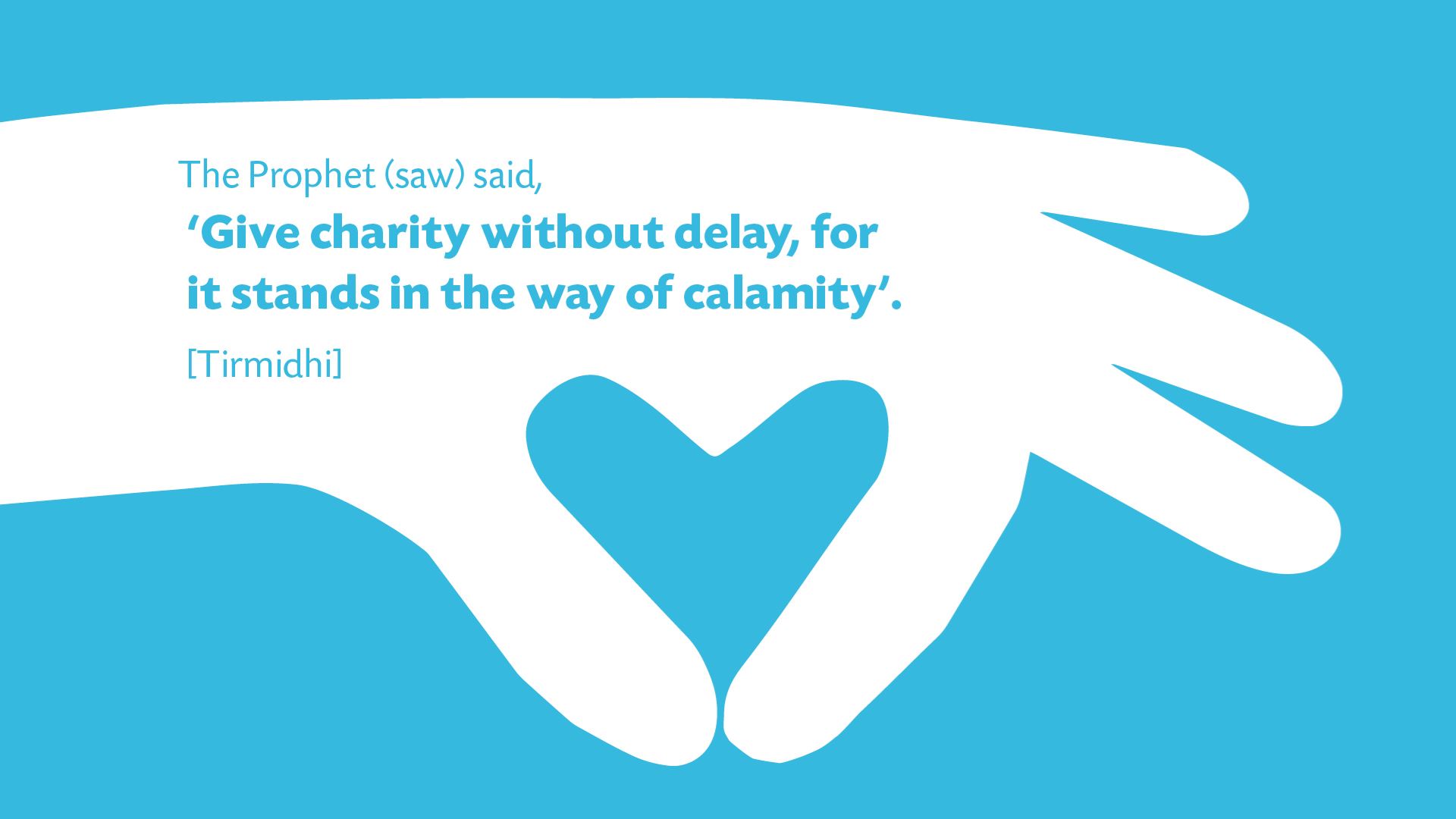
The easiest way to make this statement of trust and surrender is to set up a regular donation! Your regular Sadaqah is a beautiful expression of ongoing steadfastness and tawakkul.
There are plenty of causes you can give to, including sponsoring an orphan, providing bread to the Blessed Lands, or giving to where it is most needed.
We hope this article was helpful to you! Do share it with friends and family, as the Prophet (saw) said, ‘Whoever guides someone to goodness will have a reward like one who did it’. [Muslim]





